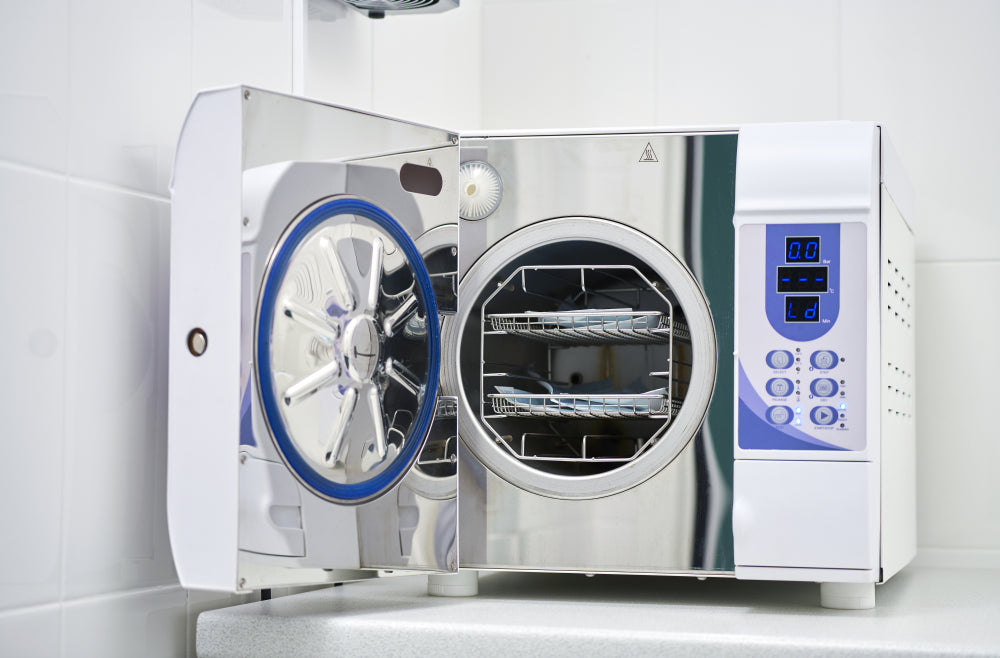Autoclaves are complex devices which have an important role to play in infection control and preventing the spread of disease.
Autoclaves are used to sterilise surgical equipment and other medical devices, and it is vital that they are properly calibrated and correctly loaded.
At first glance, they seem simple to use, and it is easy to understand why some people erroneously think of them as being 'glorified dishwashers', but that is far from the case.
Is Training Required to Operate an Autoclave?
Before someone can use an autoclave, they should be fully trained.
There are many companies that offer training for both autoclave users, and autoclave technicians, so that the machines can be used, tested, and maintained to the exact standards that are required in a medical environment.
Those who work with autoclaves are likely to spend a lot of time handling potentially hazardous biological materials.
For this reason, they should be taught how to handle the autoclave and the materials, and how to properly dispose of any biohazard waste that is collected from the autoclave.
It is important that workers are given regular refresher courses on biohazard handling and safety.
It is easy for people to become complacent, especially when working in a generally 'sterile' environment, forgetting that the reason that the environment is so clean and safe is because of the exact precautions that are taken every step of the way.
Autoclave Qualifications
While there are many agencies that offer autoclave qualifications, the ASCED Module/Unit of Competency for operating an autoclave is one that is often used in training.
This unit is recognised by the Industry Skills Councils in Australia and covers the core skills required for performing sterilisation processes using an autoclave.
There are other modules that are focused on using autoclaves for vulcanizing products, or for construction.
The process for performing sterilisation is quite in-depth, requiring that the autoclave is clean and properly wrapped and that items were loaded into it correctly.
The position of the items is important, and it is also important that the autoclave is not overloaded.
If the autoclave is overloaded, it will still operate, but the inside of the device may not reach the required temperature.
This means that steam may not travel to reach every part of the devices, appliances or containers that were put into it.
Once the autoclave is in operation, it must be monitored to ensure that it reaches the required temperature and that all readouts are as expected.
The use of the autoclave must be properly documented, based on the procedures for the workplace in question.
After the sterilisation process is completed, the autoclave should be shut down, and all items should be removed and inspected.
Sterile and non-sterile items should be stored separately, and the autoclave itself should be inspected and cleaned as necessary.
Maintaining the Autoclave
While employees can do a lot of the day to day maintenance for an autoclave, standard training focuses only on general autoclave use.
Your devices should be serviced and tested every 6 to 12 months to ensure that they are safe and fully operational.
These tasks should be performed by a fully trained engineer who is familiar with the relevant Australian Standards.
In the event that an autoclave seal is damaged, or that the autoclave was improperly calibrated and is in need of repair, you may need to have some extensive testing carried out to confirm that the device is operating properly after the repairs, and that sterilisation is being successfully performed, with sufficient safety margins.
If you are searching for the best autoclave supplier in Australia, then look no further than Medical Equipment Services Australia.
We were originally established in 1952 in order to provide electro-medical products to healthcare professionals across the country.
The company (Medical Equipment Services) was acquired by Medical Equipment Australia in 2009. Since then, we have also expanded into the dental industry.


